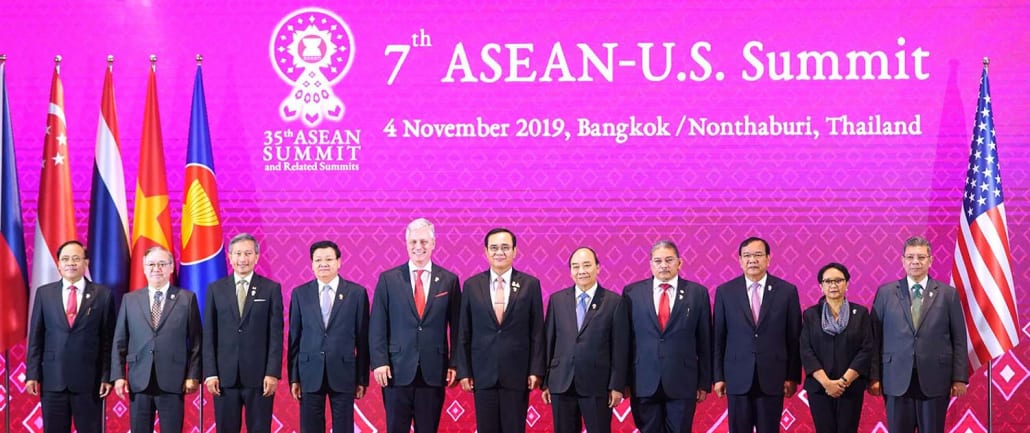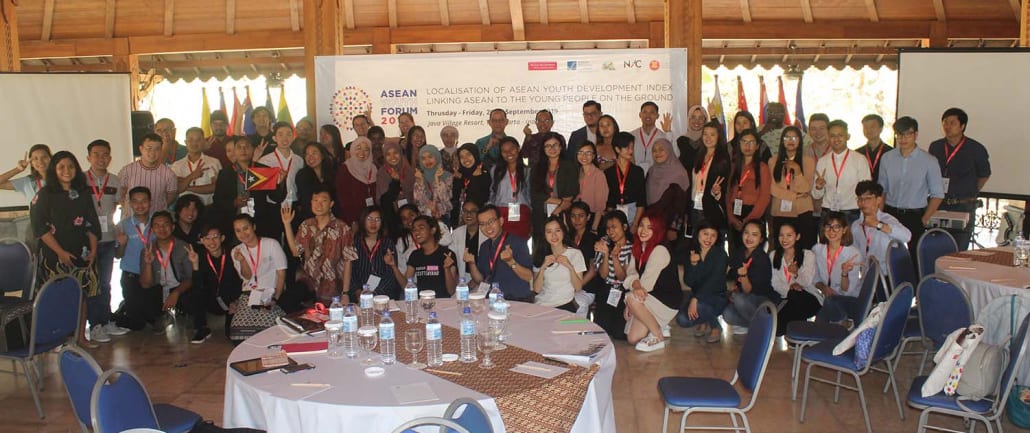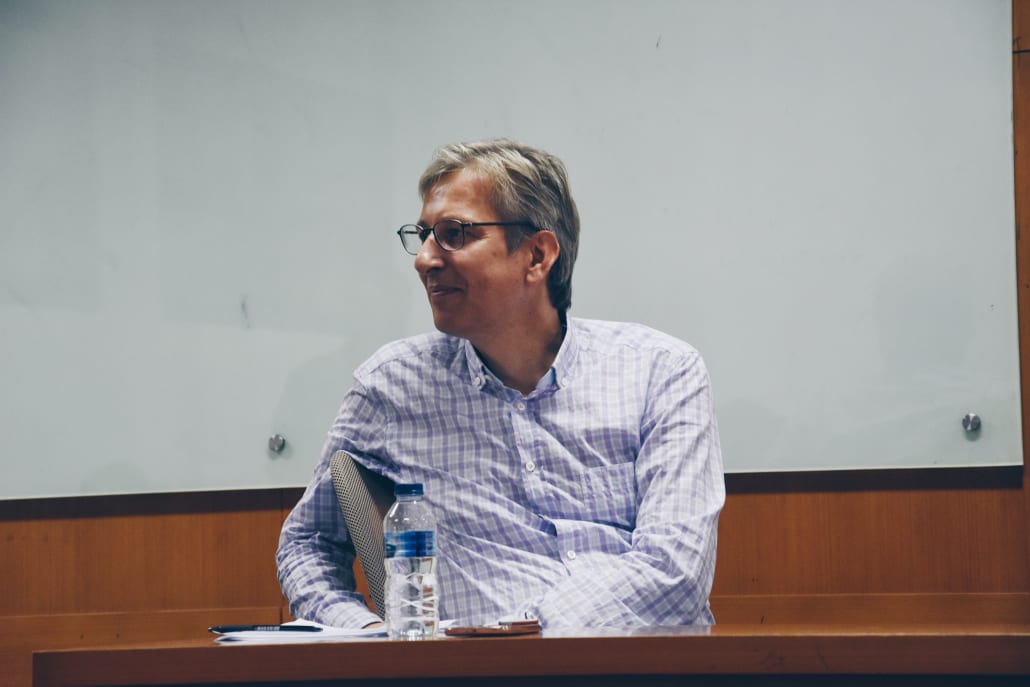Press Release: Public Discussion and Book Launching on the 10th Anniversary of AICHR The Evolution of the ASEAN Human Rights Mechanism: Institutional and Thematic Issues Within

Written by: Fara Sheila Azalia In commemoration of ASEAN Intergovernmental Commission on Human Rights (AICHR)’s 10th anniversary, ASEAN Studies Center UGM has held the Public Discussion and Book Launching with the theme “The Evolution of the ASEAN Human Rights Mechanism: Institutional and Thematic Issues Within” at East Seminar (Seminar Timur), Faculty of Social and Political […]
35th ASEAN Summit and Related Summits

Sunday 10th November 2019 – On 31st October until 4th November, Heads of States of ASEAN gathered in Bangkok for the 35th ASEAN Summit. With this year’s theme of “advancing partnership for sustainability”, Heads of States reiterated the importance of continuity and sustainability, and committed to continue promoting partnership in the interest of sustainability within […]
Public Discussion & Book Launching

On the 10th Anniversary of AICHR, ASC UGM is proud to present Public Discussion and Book Launching with the theme of “The Evolution of the ASEAN Human Rights Mechanism: Institutional and Thematic Issues Within.” The event will be held on Saturday, 16th November 2019, from 09.00-13.00 at Convention Hall, 4th floor, Faculty of Social and […]
Press Release: Inclusive Education for Child Refugees

Last Saturday (12/10) ASEAN Studies Center, Sandya Institute, and PolicyLab held a joint event with theme centered around global refugee issues with specialized subjects in Asia. This event invited around 70 to 80 guests from various backgrounds and institutes to come and discuss the rising concern within refugees issues. To accommodate this event five speakers […]
Press Release ASEAN Youth Forum 2019

ASEAN Youth Forum 2019 was successfully held through the collaboration between ASEAN Youth Forum Committees and ASEAN Studies Center Universitas Gadjah Mada in Java Village Resort, Yogyakarta, from 26 September to 28 September 2019. Attended by 54 delegates from different civil society organizations in ASEAN countries and Timor Leste, the event brought the theme of […]
Press Release Bincang ASEAN: “Challenges for Civil Society Advocacy on Human Rights in the Next Decade”
Yogyakarta, 30th September 2019 Written by Robbaita Zahra Yogyakarta – On Friday, 27th of September 2019, ASEAN Studies Center Universitas Gadjah Mada held Bincang ASEAN with the theme of “Challenges for Civil Society Advocacy on Human Rights in the Next Decade”, bringing Ms. Yuyun Wahyuningrum, the Representative of Indonesia to the ASEAN Intergovernmental Commission on […]
Press Release Public Lecture: “The Politics of Leadership Succession: A Comparative Perspective across Democratic and Non-democratic Regimes”

Yogyakarta, 20 August 2019 On Tuesday 20th August 2019, ASEAN Studies Center UGM welcomed the new semester with a public lecture by Professor Ludger Helms from the University if Innsbruck, Austria. In this lecture, Professor Helms talked about his research on leadership succession, and compared leadership transitions between democratic and non-democratic governments. The public lecture […]
Internship 2019 #2

Download full poster here [ASC UPDATE] Internship 2019 Second Term We have good news! ASEAN Studies Center Universitas Gadjah Mada invites students from various universities in Yogyakarta to join our Internship Program and involves in our 2019 research and program. Internship period: August – December 2019 Required Documents: Cover Letter CV TOEFL/IELTS/TOEFL Prediction Certificate Other […]
Press Release Bincang ASEAN “What Can ASEAN Do For Rohingya?”

Yogyakarta, Friday, November 24th, 2018 The series of Bincang ASEAN was concluded with a very problematic discussion over the humanitarian crisis situation in Myanmar’s Rakhine state. This Bincang ASEAN was commenced on 24 November 2018 with Diah Triceseria as the speaker. The alleged ethnic cleansing against the Rohingya Muslim minority still continues after today. These […]
Press Release Bincang ASEAN “Gender in ASEAN”

Yogyakarta, Friday, November 9th, 2018 The ASEAN Studies Center UGM and ASEAN Studies Center UMY held its first collaborated Bincang ASEAN entitled “Gender in ASEAN” at Amphitheater E6 K.H Ibrahim Building, Universitas Muhammadiyah Yogyakarta. This event featured Dr. Nur Azizah, M.Si. (Head of International Relations Department Universitas Muhammadiyah Yogyakarta & Researcher at ASEAN Studies […]
